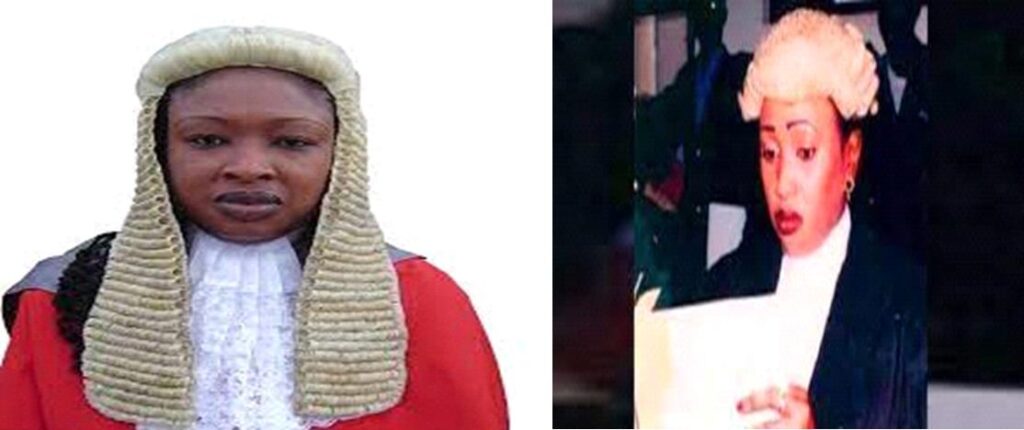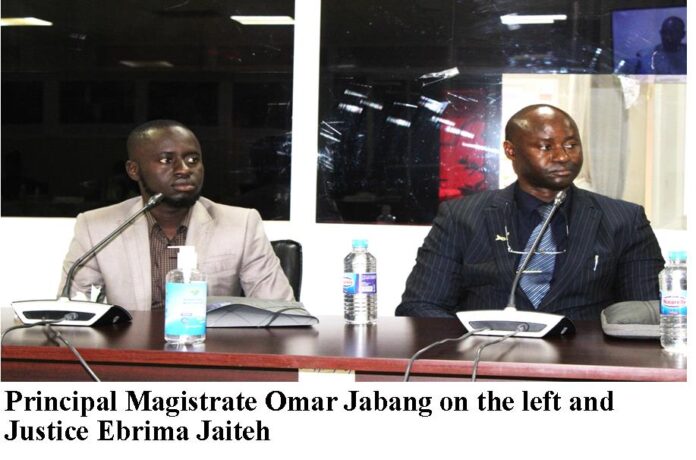The Truth, Reconciliation and Reparations Commission (TRRC) in its Investigative Report and Recommendations to the Government of the Gambia, found that former President Yahya Jammeh interfered and undermined the independent functioning of the Judiciary and the Ministry of Justice.
See below the reproduction of the Commission Report and Government Position in the ‘White Paper.’
Theme 17: Institutional Hearings: Justice Sector Entities.
Background:-

- Despite the legal frameworks stipulated in the 1997 Constitution, Acts of the National Assembly and International Instruments ratified by The Gambia aimed at ensuring justice and the protection of fundamental human rights, the regime of Yahya AJJ Jammeh interfered and undermined the independent functioning of public institutions such as the Judiciary, the Ministry of Justice, The Gambia Police Force and National Intelligence Agency.
- The Commission has illustrated how the twenty-two years of former President Yahya Jammeh’s regime established a system of appointing un-vetted and unqualified judges and the unlawful termination of judges thereby eroding the independence and effectiveness of the judiciary.
- The report highlighted numerous unlawful terminations of Judges and Magistrates leading to the prosecution of judicial officers such as Hon. Justice Amina Saho Ceesay, together with Hon. Justices Ngui Mboob Janneh and Saffiatou Njie.
- In 2016, Justice Na Ceesay Sallah-Wadda’s service was terminated as a Judge of the Court of Appeal following a meeting convened by the President of the Court of Appeal wherein, she expressed her opinion for granting bail regarding the case of Ousainou Darboe and UDP supporters given that the offences charged were bailable.
- The evidence has shown numerous unlawful terminations of the services of Judges such as Hon. Chief Justice Chowan, Justice Raymond Sock and Hon. Justice Gibou Janneh.
- Justice Ebrima Jaiteh and Magistrate Omar Jabang in presenting the judiciary’s position paper told the Commission that the constitutional provisions on the appointment and termination of judges under Yayha Jammeh’s regime were violated as judges were appointed and terminated without consultation of the Judicial Service Commission (JSC).
- According to Justice Ebrima Jaiteh and Principal Magistrate Omar Jabang, they were arrested and detained at the Police Headquarters while executing their judicial responsibilities. On his part, Justice Ebrima Jaiteh was arrested for striking out a case of political interest for lack of jurisdiction whereas Principal Magistrate Omar Jabang was arrested for acquitting and discharging one Yusupha Saidy.
- Cherno Marenah, former Solicitor General and Legal Secretary testified to the effect that Magistrates who refused to be intimidated by Yahya Jammeh will usually face punitive measures such as reprimand, arbitrary arrest and detention.
- In his testimony, Borry Touray told the Commission that “Machinery Judges” appointed by Yahya Jammeh were delivering rulings against litigants in cases that were of interest to former President Yahya Jammeh.
- The regime has used law enforcement agencies such as the Police as a tool of oppression through arbitrary arrest and denial of bail. In her testimony, Neneh Cham noted that it was a practice to detain political offenders, persons charged with treason, civil servants and cases that were of interest to Yahya Jammeh beyond the Constitutional limit of seventy-two (72) hours.
- The evidence shows that the former President Yahya Jammeh interfered with the judiciary by giving directives to the Chief Justice on the desired outcomes of cases that were of interest to him and as a result of his (Yahya Jammeh) control of the judiciary Court Orders were defied by government officers under Jammeh’s command.
- Fatou Jagne Senghore in her testimony in respect of the 10th and 11 April 2000 students’ protest told the Commission that the said period was a “defining moment” in her career. Following the killing of student protesters, the government passed the Indemnity Act to indemnify security officers who were identified for prosecution by a Commission.
- The Commission found that the execution of the nine death row inmates in August 2012 was procedurally unlawful as it violated the provisions stipulated under the Criminal Code. Consequently, the Commission found that the former Attorney General and Minister of Justice Lamin A.M.S. Jobarteh participated in organising the execution of the nine death row inmates without the due process of the law.
- Further, the Commission found that the 1997 Constitution is flawed as it suffered a series of amendments and as such needs to be replaced with one that will meet the aspiration of the people.
- In addition, the Commission found that during the 22 years of Yahya Jammeh’s regime, journalists, human rights defenders were arbitrarily arrested for long periods without access to lawyers or the courts thereby subjecting them to gross human rights violations resulting in self-imposed exiles for some journalists and human rights defenders.
Recommendations from the TRRC and the position of the Government:
- The Commission, having considered the totality of the evidence, made the following recommendations:
- Section 141 (2) (c) of the 1997 Constitution which grants power to the President to dismiss Judges should be repealed as this provision encourages interference by the executive in the Judiciary. This will also ensure that there is security of tenure for Judges.
- The Government accepts the recommendation of the Commission. The Judicial Service Commission is now the sole body charged with overseeing the affairs of judicial officers.
- The Constitutional provisions on the qualification for appointment of Judges should be adhered to and an independent committee should be set up and supervised by the Judicial Service Commission to screen candidates for the appointment of Judges.




















